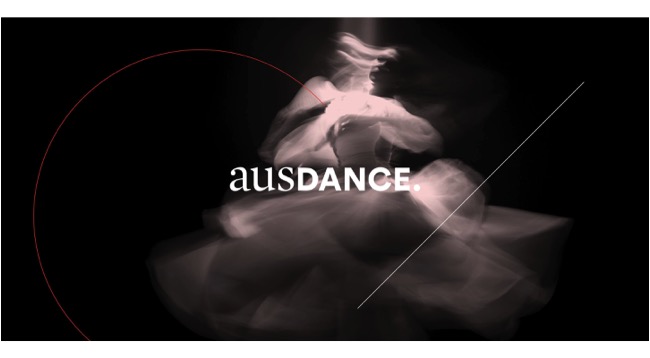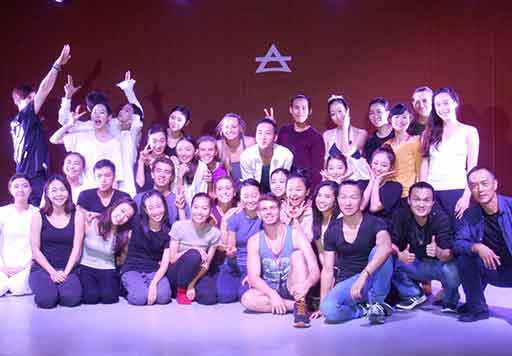Independent practice
Filter Entries:
Articles View all
Online delivery of dance classes and tutorials
Due to COVID-19 and changed circumstances in studios, schools and community, many dance providers have chosen to move their classes online. Here is a guide to keeping people connected, moving and staying positive in challenging times. However, teaching online presents a new set of practical, legal and pedagogical considerations. This resource looks at these three areas and provides some ideas and suggestions. It has been prepared by Dr Katrina Rank, Director of Education and Life Long Learning at Ausdance Victoria.
Reflections from Burkina Faso: Lucky Lartey on the Keith Bain Choreographic Travel Fellowship
Lucky Lartey reflects on his first two weeks residency and mentorship with Serge Aimé Coulibaly, supported by Ausdance National's Keith Bain Choreographic Travel Fellowship and the Innovating Practice Grant (Ausdance NSW).
Documenting the influence of travel on my artistic practice
Gabrielle Nankivell, the inaugural recipient of the Ausdance Keith Bain Choreographic Travel Fellowship, shares her travel story, research notes and workbook from Vienna, Munich, Barcelona and Berlin, where old and new influences shape her practice.
The subject of travel and professional development, and the value this experience offers artistic practice, arises regularly in the dance arena. As artists we seek these experiences because we are hoping to find something other than what we know or perhaps even something that makes us finally feel at home – either way, we are seeking something to ignite our imaginations and to deepen our knowledge and empathy. We hope to meet people, build new relationships and share practice. We imagine it will generate energy and feed our motivation. We take to the road to connect with others and to connect with our selves. To paraphrase the sentiment of many a wanderlust quote, travel opens the mind and makes the heart grow... We know and the philanthropists know. Travel and international exchange is a good thing.
The Catalyst fund—same diversion of funding, new name?
As you may know, the arts sector responded with overwhelming support for the role of The Australia Council when it responded to the Senate inquiry into the 'Impact of the 2014 and 2015 Commonwealth Budget decisions on the Arts', or, in other words, the sudden diversion of Australia Council funds to establish the National Program for Arts Excellence.
Every World Dance Alliance conference is an eye-opener for my choreographic practice
WDA is free to us at Ausdance, yet so few artists know about this amazing opportunity each year in different locations around the world. Each conference has been an eye-opener for my choreographic practice—understanding the links between it and academic research, studio practice, dance in the rest of the world and most significantly for me, intercultural dance. Every topic is covered: from dancer-choreographer relationships to education to the role of women in dance and politics. Many people have become good friends, and we have formed a strong bond. I love it.
Projects View all
Creating Pathways National Indigenous Dance Forum
Creating Pathways was a national Indigenous dance forum for mid-career dance artists held in October 2005 at the National Museum of Australia in Canberra. Participants came from all over Australia to discuss issues such as identity, training, the question of contemporary Indigenous dance, career opportunities and professional practice.
As a result of recommendations made at Creating Pathways, a new position of National Indigenous Dance Coordinator was funded by the Australia Council.
Creating Pathways was managed by Ausdance National and funded by the Aboriginal and Torres Strait Islander Arts Board and the Dance Board of the Australia Council, and the Arts ministries of NSW, Queensland, Western Australia, South Australia and the Northern Territory.
National Dance Forum 2015
The National Dance Forum 2015 focused on the inherent concerns and realities affecting current professional practice in Australia.
2013 National Dance Forum
Exploring the unique qualities of dance as an artform and why we choose it as our mode of expression, communication or storytelling, this forum embraced views from multiple perspectives: maker, dancer, educator, audience member and the broader community, while focusing on a central question, 'Why dance?'
Shaping the landscape—celebrating dance in Australia
This, the fourth book in the series Celebrating Dance in Asia and the Pacific, explores the current dance scene in Australia from a wide perspective that mirrors the creative engagement of artists with Australian culture and the landscape.
2011 National Dance Forum
Some of Australia’s most exciting dancers, choreographers, curators, critics and collaborators met to discuss and reflect on the state of dance practice in Australia now, and to chart a course for the future.
Publications View all
Brolga 40
Articles in this issue explore ideas that relate to improvisation as it has been experienced in a practical, bodily way.
Marchant’s article Dance Improvisation: Why warm up at all? considers what takes place before improvising begins, while warming up. In Improcinemaniac, Reid describes her simultaneous practice of screendance and improvisation. Reid uses language that is deliberately poetic, and deconstructs and reassembles words in order to question or reconfigure meanings, particularly those of conventional dance language. Using improvisational play with light and lens is also described by Wilson who applies a deeply embodied approach, developed over years working as a dancer, to her visual art practice in experimental photography. Millard’s What’s the score? explores the use of scores or verbal propositions as supports for dance improvisation. In Gaps in the Body, Fraser writes of having arrived at an understanding of improvisation that, rather than being about moving, is about ‘attention’. McLeod’s article, The Ethos of the Mover/Witness Dyad, describes the response of an invited public to a performative Authentic Movement event over three evenings.
Dancehouse Diary
The Dancehouse Diary aims to bring the independent dance makers’ thinking to wider audiences. It aims at developing rigorous content around their work and triggering new perspectives and connections around their research. It is a catalyst for provoking critical thinking, discourse and a poetic vision of dance and other related arts forms. It is Dancehouse’s mission to cultivate access and appreciation of this art form and for that, the Diary is a less ephemeral and a more in-depth attempt to make those connections.
Australian Dance Summits 2001
This report presents some of the debate from a series of Dance Summits held in each State and Territory during February/March 2001. In 1991, under the auspices of the Australia Council, 148 members of the Australian dance community gathered in Canberra to debate the future of dance for the following decade. Much was achieved from those recommendations, but with a new decade about to begin, Ausdance assumed the role of facilitator and organised a series of State and Territory meetings, culminating in a national summit in Canberra on 26 March 2001. More than 220 members of the Australian dance community debated a wide range of issues during these consultations, and agreed on six priorities for action.
News / Blog / Press Releases / Events View all
Ausdance calls for government stimulus to include arts workers

As we are all very aware, the arts and live performance have been devastated by the impact of COVID-19, along with the rest of the community.
Any businesses that practice in the arts sector, be they for-profit or not-for-profit, big, small or individual, must be included in the upcoming economic stimulus package. In the dance sector there are studios, performance companies and individuals who have had their work lost or diminished to the point of closing down. Any government stimulus for business must include arts workers, and take account of issues such as rent and mortgage assistance, freezing of utility bills, and rapid responses by Centrelink, including the abandonment of waiting times.
With so many independent practitioners in dance, we implore all governments to find ways to support individuals and sole traders through this crisis. Artists have always been extremely resourceful in sustaining their practice through normal times. Their opportunities for other work though, have now diminished to the point of non-existence and, despite their many creative resources, the financial and artistic consequences for them are dire.
Eventually the pandemic will pass. We don’t know when. When it does, the creative industries, and especially the arts, will be the leaders in reviving the spirits of the community and working with all Australians to restore society and the economy. Everything possible must be done to ensure that artists are actually around to do so.
If you want to contribute to Ausdance's knowledge of the impact of COVID-19 on your practice, please complete this survey.
For further information contact:
Paul Summers, Ausdance National President
Mobile 0417 925 292
Lewis Major receives Keith Bain Choreographic Travel Fellowship
At the 21st Australian Dance Awards (8 September 2018), Ausdance National awarded the Keith Bain Choreographic Travel Fellowship to Lewis Major. The fellowship provides financial assistance for an emerging choreographer to travel internationally with the sole purpose of developing and extending their choreographic practice.
National Dance Forum 2017: Dance in the Digital Domain
Tuesday 22 August 2017
For immediate release
Australia’s peak dance organisation, Ausdance National, will host a two-day forum next month bringing together dance makers, producers and presenters for a highly topical forum focusing on the future of dance within the digital domain. The National Dance Forum is Australia’s key platform for dance artists, industry professionals and educators in providing rich opportunities to discuss, debate and collaborate with some of the most influential individuals and organisations in the country.
National forum to explore dance practice in the digital age
16 May 2017
The 2017 National Dance Forum will bring together makers, producers and presenters to discuss and share knowledge on current digital practices and technological developments. The two-day forum will focus on strengthening the dance sector’s capacity within the digital domain.
Led by the dance sector’s advocate for 40 years—Ausdance National—the fourth National Dance Forum (NDF2017) will take place at the Victorian College of the Arts in Melbourne, 25–26 September 2017 and will follow the Australian Dance Awards (Arts Centre Melbourne, 24 September 2017).
Dance artists, companies, presenters and researchers looking for ways to grow meaningful audience relationships and understand the issues around making art in a digital environment, need to attend.
World Dance Alliance update March 2017
This year’s WDA Global Summit will be held from 23–28 July in St John’s, Newfoundland, a beautiful Canadian city on the east coast. Titled ‘Dancing from the Grassroots’, there will be many exciting events—performances, a conference including Pecha Kucha presentations, panel discussions and papers, and of course a Choreolab and master classes. We hope many Australians have made submissions to participate and look forward to once again having great representation from Australia at all events. Registrations will be open shortly.
Another opportunity available to Australian Ausdance members is the International Young Choreographer Program (ICYP), which offers fellowships to eight young artists: three from Taiwan, three from other Asia Pacific countries, and one each from WDA Europe and WDA Americas.
This year Australian Scott Ewen has been selected to participate in the ICYP. Scott attended the WDA Choreolab as a a highly regarded choreographer last year in Seoul. Congratulations Scott!
Ausdance members are automatically members of the WDA through Ausdance National’s partnership arrangement that includes publication of Asia Pacific Channels, access to choreographic fellowships, and discounted event attendance. Make sure you’re an Ausdance member before applying for any of these events.
 Scott Ewen (front) with dancers and choreographers from the 2016 Choreolab at the WDA festival in Seoul. Choreolab convenor Jin-Wen Yu is kneeling, on the right. Photo: Suling Chou.
Scott Ewen (front) with dancers and choreographers from the 2016 Choreolab at the WDA festival in Seoul. Choreolab convenor Jin-Wen Yu is kneeling, on the right. Photo: Suling Chou.
